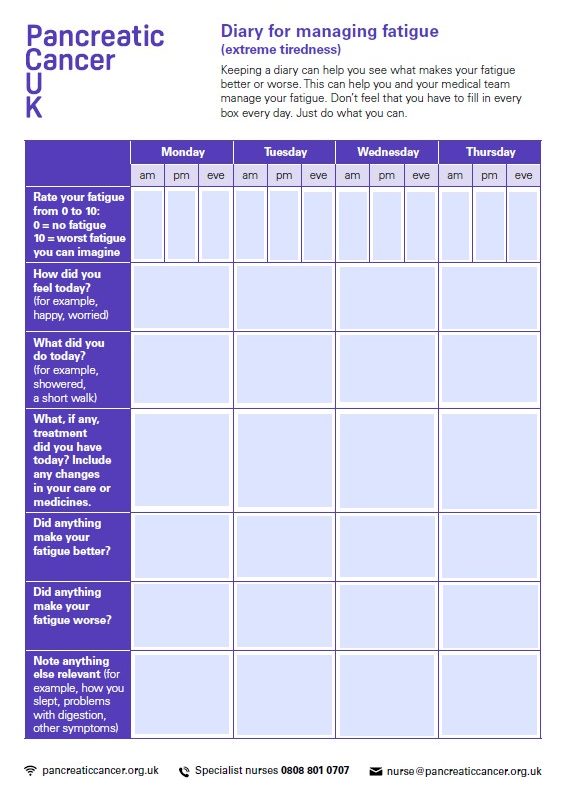Physical activity
There is good evidence that gentle physical activity can help with fatigue and increase energy levels. Physical activity is unlikely to make your fatigue worse. It can also help you feel better generally, improve your strength, and help you deal with stress.
Speak to your medical team about what type of activities are best for you, and any safety issues to be aware of.
A physiotherapist can give specialist advice about physical activity. An occupational therapist (OT) can help you include activity in your daily routine.
For physical activity to help, you need to do it regularly. But don’t overdo it. For most people, doing ten minutes of gentle activity three times a day would be suitable. This could include:
- walking, such as going for a walk around the block or garden, or a longer walk, depending on what you can manage
- light housework or gardening
- sitting in a chair or lying on a bed or the floor, raising your leg, and holding it for a few seconds, before lowering it and repeating a few times
- lifting some small weights, tins of food or bottles of water, while sitting in a chair
- walking up and down a few steps.
It is important to do activity within your own limits. Take it easy and only do what you are able to. This will depend on how well you are. For example, you may not be able to do much if you are having chemotherapy.


